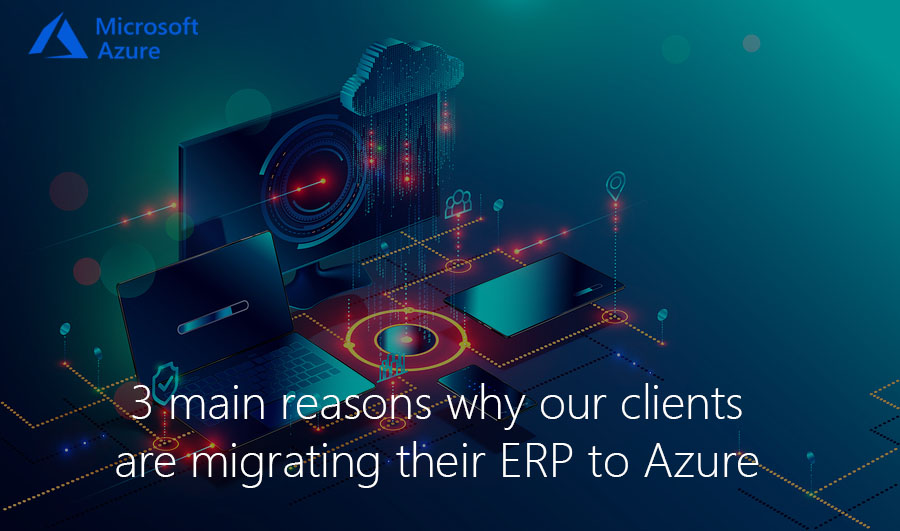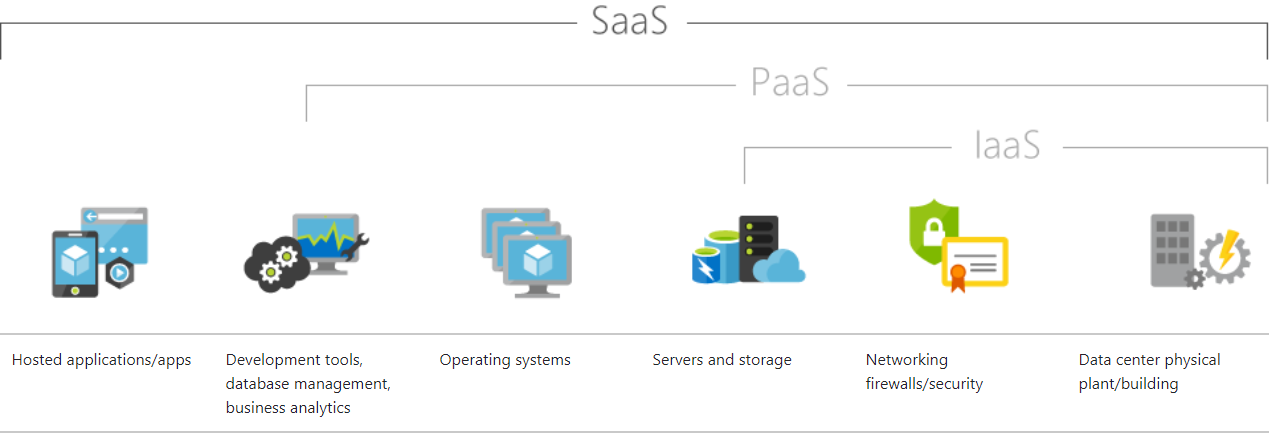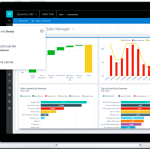
Microsoft started by developing leading tools and applications before venturing into virtualization technology, which led to the development of Microsoft Azure Cloud Services. They then combined their internet and search teams into a Cloud computing platform to serve enterprise-level clients. Now, major small and medium-sized businesses currently depend on the Azure cloud.
Ever since its launch in 2010, Microsoft Azure Cloud has become the market leader for cloud service provision. They are the leaders for Infrastructure-as-a-Service (IaaS) , Platform-as-a-Service (PaaS), and Software-as-a-Service (SaaS) provision. Here are the breakdown between the three services that Azure offers:
IaaS is an instant computing infrastructure, provisioned and managed over the internet.
PaaS is a complete development and deployment environment in the Cloud, with resources that enable you to deliver everything from simple cloud-based apps to sophisticated, cloud-enabled enterprise applications.
And lastly, SaaS allows users to connect to and use cloud-based apps over the Internet. Common examples are email, calendaring, and office tools (such as Microsoft 365).

This article will explore 3 of the many reasons why our clients are moving their Enterprise Resource Planning (ERP) systems to the Microsoft Azure Cloud services.
1. Microsoft Azure Offers Simplified IT Infrastructure Management
Organizations can rely on Microsoft for its resource elasticity and ability to keep up with any company’s computing, storage, and networking demand no matter the scale of the organization’s requirements. The IaaS services can handle every organizational duty such as hardware upgrades, security and compliance, big data analysis, web app support, etc.
2. Microsoft Azure has top-notch Security features
Security is one of the most significant concerns for companies when they want to migrate to the cloud. Microsoft Azure Cloud features encryption measures for stored data or data in transit. They allow Virtual Private Networks (VPNs) and other private cloud options to make customers more comfortable with entrusting their data with them. Azure ensures your data is stored with encryption enabled; also keeps up with the constantly changing environment by automated updates around the clock. Bottom line, no effort will be needed to secure your important and sensitive data because of Azure’s infrastructure management.
3. Simple Integration with the Microsoft Applications Stack
Azure integrates data well across other PaaS and SaaS services. Organizations can count on the simple integration between Azure and Microsoft 365, Active Directory, and even Visual Studio applications.
According to Forbes, the recent agreement between Oracle and Microsoft will significantly simplify cross-cloud computing for businesses, as most companies already use a combination of Microsoft and Oracle to run their businesses. Microsoft also announced their partnership with Truffle, the block chain company. The partnership aims to integrate the tools of the company to help developers build and operate block chain applications.
Considering the large client base of Microsoft 365 (formerly Office 365), the several partnerships with other essential data management providers, and the high security that Microsoft Azure Cloud proves to have, it is not a wonder why most organizations are adopting it. If you have any questions regarding Azure or ERP systems, contact us. For more information about migrating to the Cloud, visit our Cloud Readiness Assessment page
Don’t forget to follow us on Facebook, LinkedIn, and Twitter. Subscribe to our YouTube channel for insightful tutorials and demos.





